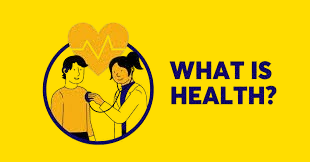Health is a fundamental aspect of our lives, yet its definition extends far beyond merely the absence of disease. It encompasses a wide array of physical, mental, emotional, and social well-being. But what exactly does “health” mean in today’s world? This blog explores the multifaceted concept of health and the various dimensions that contribute to a holistic understanding of being healthy.
Understanding the Definition of Health
The World Health Organization (WHO) defines health as a “state of complete physical, mental, and social well-being, and not merely the absence of disease or infirmity.” This definition broadens the traditional concept of health by emphasizing well-being in multiple areas of life. It acknowledges that health is not just about dodging illnesses, but about thriving in all aspects of life.
Let’s break this down further:
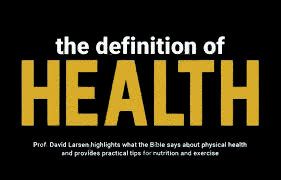
Physical Health
Physical health is often the most straightforward and widely understood component of health. It refers to the proper functioning of the body and its systems. To maintain good physical health, we need a balance of:
Nutrition
A diet rich in essential nutrients such as vitamins, minerals, proteins, and carbohydrates supports the body’s growth, repair, and energy needs.
Exercise
Regular physical activity helps in maintaining muscle strength, cardiovascular health, flexibility, and endurance.
Sleep
Adequate rest allows the body to recover, repair, and restore energy for the next day.
Disease Prevention
Regular health check-ups, vaccinations, and adopting a healthy lifestyle help in preventing chronic illnesses.
Mental and Emotional Health
Mental health refers to our cognitive, emotional, and social well-being. It encompasses how we think, feel, and behave. It also influences how we handle stress, make decisions, and interact with others. A person with good mental health is not just free of mental illness but is also able to cope with life’s challenges, manage emotions, and maintain a positive outlook.
Mental is dynamic and can be affected by a range of factors, including genetics, trauma, stress, relationships, and lifestyle choices. Just as we take care of our bodies, we need to take care of our minds to ensure we lead a balanced, happy life.
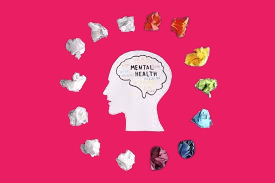
Stress Management
Learning to cope with stress through mindfulness, relaxation techniques, and positive thinking can improve mental health.
Mental Disorders
Conditions such as anxiety, depression, and PTSD can affect mental health. Early detection, therapy, and medical intervention can help manage these issues.
Emotional Health
Being emotionally healthy means having control over one’s feelings, forming healthy relationships, and being resilient in the face of life’s challenges.
Social Health
Humans are social creatures, and our interactions with others significantly impact our . Social refers to the ability to form meaningful relationships and interact positively within communities.
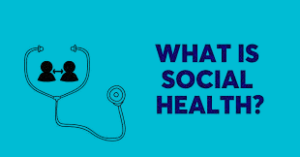
Support Systems
Having a network of friends, family, or social groups provides emotional support, reduces stress, and enhances well-being.
Community Engagement
Being actively involved in community or social activities contributes to a sense of belonging, which is essential for overall .
Healthy Relationships
Positive relationships foster trust, respect, and emotional support, which contribute to a fulfilling life.
Spiritual Health
Spiritual refers to finding meaning, purpose, and balance in life. This doesn’t necessarily pertain to religious beliefs but rather to the understanding of one’s place in the world and one’s sense of self-worth.
Mindfulness and Meditation
Practices that promote self-awareness and calmness are beneficial for spiritual .
Purpose in Life
Having a clear sense of direction or life goals can give individuals the motivation to lead healthier, more fulfilling lives.
The Importance of Holistic
Health isn’t just about keeping one part of ourselves in check. A holistic approach to means recognizing how the different areas—physical, mental, social, and spiritual—interact and affect each other.
For example
A person who is physically fit but emotionally distressed may still suffer from poor .
Social isolation can contribute to both mental and physical decline.
Engaging in regular physical activity can improve mental by reducing anxiety and boosting mood.
Tips for Maintaining Holistic
Achieving and maintaining a state of well-rounded requires balance. Here are some tips to help you on your journey:
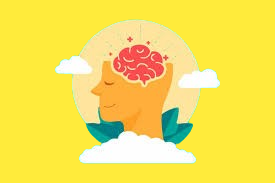
Stay Active
Incorporate regular exercise into your routine to improve both physical and mental well-being.
Eat Well
A balanced diet not only boosts physical but also supports mental clarity and emotional stability.
Practice Mindfulness
Engage in activities like yoga or meditation to enhance emotional and spiritual well-being.
Build Relationship
Strengthen your support network by fostering positive relationships and community ties.
Take Breaks
Make time for rest and relaxation, which are essential for recovery and stress management.
Conclusion
Heth is more than just a condition; it is a dynamic and multi-dimensional concept that requires attention to various aspects of life. By understanding and nurturing the different dimensions of —physical, mental, social, and spiritual—you can live a more fulfilling and balanced life. isn’t about perfection; it’s about making consistent, positive choices that support well-being in all areas of life

